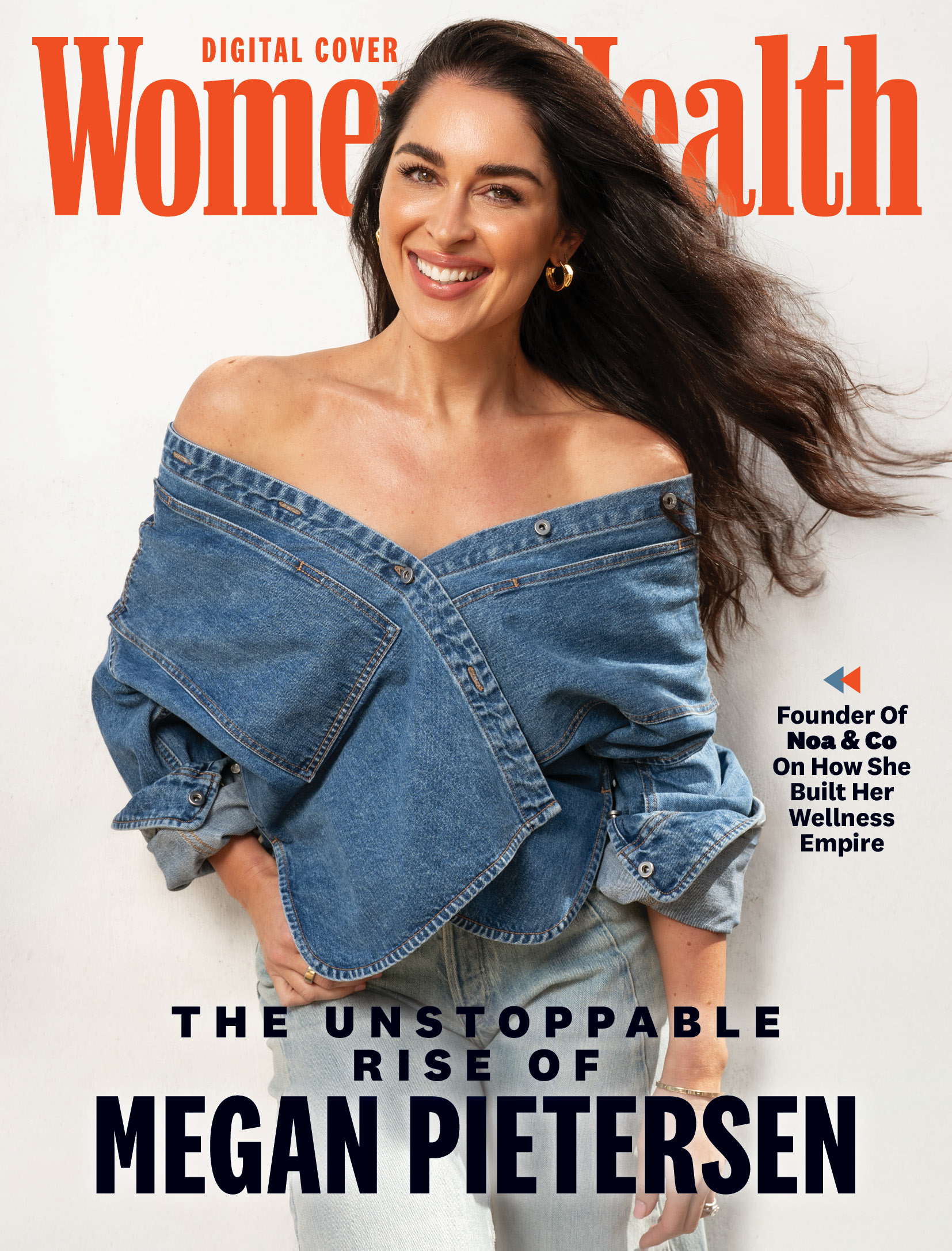Across Nigeria and West Africa, the pressure to “be healthy” often feels overwhelming. Many people find themselves endlessly scrolling through social media, confronted by images and promises of perfect wellness — usually involving green juices, high-intensity workouts, or chasing an unrealistic body ideal. Yet, for many Africans balancing work, family, and community, these standards often seem detached from daily realities. Renowned entrepreneur and wellness advocate Megan Pietersen, founder of Noa & Co, argues that this global trend misses the heart of true wellness.
“Discipline in one area really spills into every other part of your life. If you’re moving your body, you’re more mindful of what you eat.”
For Megan, who juggles life as a business leader, mother, and wife, true wellness isn’t about chasing the hustle or sacrificing joy. Instead, it’s about practical, sustainable daily habits that can be adapted no matter where you live — Lagos, Accra, or Johannesburg. “What I’ve discovered is that discipline in one part of your day naturally improves other areas,” she says. “Move your body and you’ll want to eat better, drink more water, and make healthier decisions overall.” This holistic approach is gaining traction across African cities, where culture and family play a significant role in well-being. Here are the five simple wellness practices Megan lives by, with tips for integrating them into busy West African lives.
1. Wellness Means More Than Weight: Prioritizing Mental Health
For many in Nigeria and Ghana, wellness is often linked to body shape, with a particular emphasis on losing or gaining weight to fit social ideals. Megan explains, “There’s a strong association between wellness and the number on the scale, especially among women. But real wellness is about your mental state, your sleep patterns, and how you feel every day.”
WELLNESS TIP: Megan suggests shifting focus from just physical appearance to internal markers: “Ask yourself, are you getting quality sleep? How are you coping with daily stress? Those are the real signs of wellness.” In regions where urban stress is common and economic pressures linger, prioritizing sleep and emotional well-being is vital. According to the World Health Organization, mental health challenges are rising in Africa as urbanization increases, making this mindset shift even more relevant for local communities.
2. Make Space for Self-Care, Even in a Hectic Schedule
Across much of Africa, self-care is often viewed as a luxury, particularly for women balancing family and career. Megan reveals, “Entrepreneurs rarely have boundaries. In the early days, I handled every job myself—guessing orders, managing customers, and more. But real self-care sometimes means asking for help.”
WELLNESS TIP: She highlights the importance of recognizing your limits and building a support network. “I’m now good at delegating what I don’t excel at, which allows me to focus on the most important things.” In Nigeria’s fast-paced cities, extended family, friends, and even local service providers can step in to help. Recognizing when to seek assistance is as important as hard work — and it’s how many successful entrepreneurs, like Megan, keep both business and personal life afloat.

3. Make Daily Movement a Non-Negotiable Form of Self-Care
Physical activity isn’t about transforming into a fitness influencer or matching global trends. According to Megan, “As mothers, we often forget to treat ourselves with kindness — to nourish ourselves the way we nourish our children. For me, regular movement isn’t about getting skinny. It’s about staying strong enough to be there for my family, now and in the future.” In Lagos, Abuja, Accra, and cities across Africa, practical movement — from walking to the market to dancing at family gatherings — is part of everyday life.
WELLNESS TIP: Megan sets aside at least an hour, four times a week, for intentional movement. “That time is therapy. I switch off my phone, ignore emails, and just focus on myself.” This routine can be adapted locally, whether it’s an early morning walk, attending a dance class, or playing football at a local park. According to Lagos-based fitness consultant Adebowale Smith, “Regular movement, adapted to one’s routine and environment, is often more effective than expensive gym memberships.”
4. Take Charge of Your Meals – and Reduce Food-Related Stress
Meal preparation, while common in other regions, is gaining traction among busy Nigerian and Ghanaian professionals, students, and families. Megan notes, “Meal prepping – and I don’t do it every week – saves me so much time. My husband is good at grilling, so we prepare proteins while I focus on vegetables. By Monday, healthy options are ready, and it’s easy to throw together something nourishing during the week.” Meal prep can help households avoid the stress of daily cooking, especially during busy periods or when food prices are unpredictable.
WELLNESS TIP: “For breakfast, prepping something easy like chia pudding, paired with a scoop of protein powder, means you start the day on a healthy note,” Megan explains. Locally, jollof rice, moi moi, or beans porridge can be prepared in advance and portioned for quick meals. According to Abuja-based nutritionist Dr. Funke Oladimeji, “Prepping affordable, local foods ahead of time helps families stay nourished even during power outages or when markets are closed.” Meal prep, therefore, isn’t just a trend: it’s an answer to food inflation and time pressure faced by many across West Africa.
5. Establish a Nighttime Routine for Quality Rest and Family Connection
In many African cultures, family routines are already central. Megan notes, “Some people fear routines, but families really thrive on consistency. When our schedule is stable, everyone feels secure — children, especially.” Research from University of Lagos sociologist Ifeanyi Agbaje confirms that regular bedtime routines help children develop emotional resilience and reduce anxiety. For many Nigerian and Ghanaian families, this is reflected in evening prayers, shared meals, or preparing for the next day together.
WELLNESS TIP: Megan shares her own structure: “From five o’clock on, I put away my phone to focus on family. We play board games, eat dinner, and get the kids ready for bed. Once the children are asleep, my husband and I catch up for about 25 minutes before lights out.” Creating these routines — even if it means switching off from social media or work messages — is crucial for both personal well-being and family unity. In the context of busy African cities, these simple rituals may be key to balancing work and home life.

These five wellness rules show that you don’t need fancy gadgets, expensive supplements, or extreme diets to feel your best. By focusing on discipline, support, movement, meal prep, and routine, people across Nigeria, Ghana, and West Africa can adapt these principles to their own lives — whether you’re a busy entrepreneur in Lagos, a student in Abuja, or a parent managing a bustling household in Accra.
It’s important to note that each family or individual will have unique circumstances. According to health experts at Nigeria’s Federal Ministry of Health, customization is essential: “There is no one-size-fits-all approach to wellness. Individuals should work within their means — from what foods are available at local markets to how much time can be set aside each day for self-care.”
As wellness culture continues to evolve globally and across Africa, the focus is shifting away from perfection toward practices that empower individuals to live healthier, more connected lives. Whether you’re starting with a simple morning walk or setting boundaries for work and rest, these small changes can yield big benefits — for yourself and your whole family.
How do you define wellness in your own life? Are there routines, habits, or local practices that keep you balanced? Drop your thoughts in the comments below and join the conversation.
Engage with fellow readers in the comments, and don’t miss new updates — follow us on Facebook, X (Twitter), and Instagram! Your story matters, and your voice can inspire others across West Africa and beyond.










